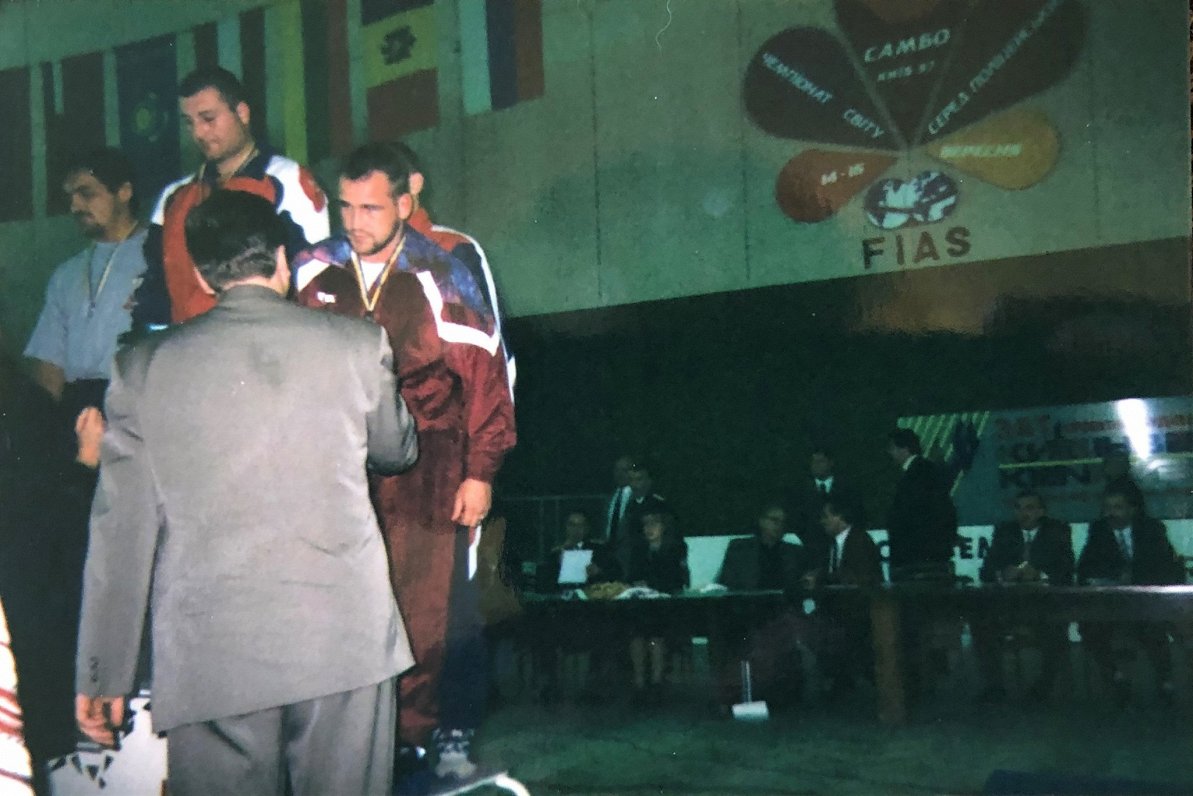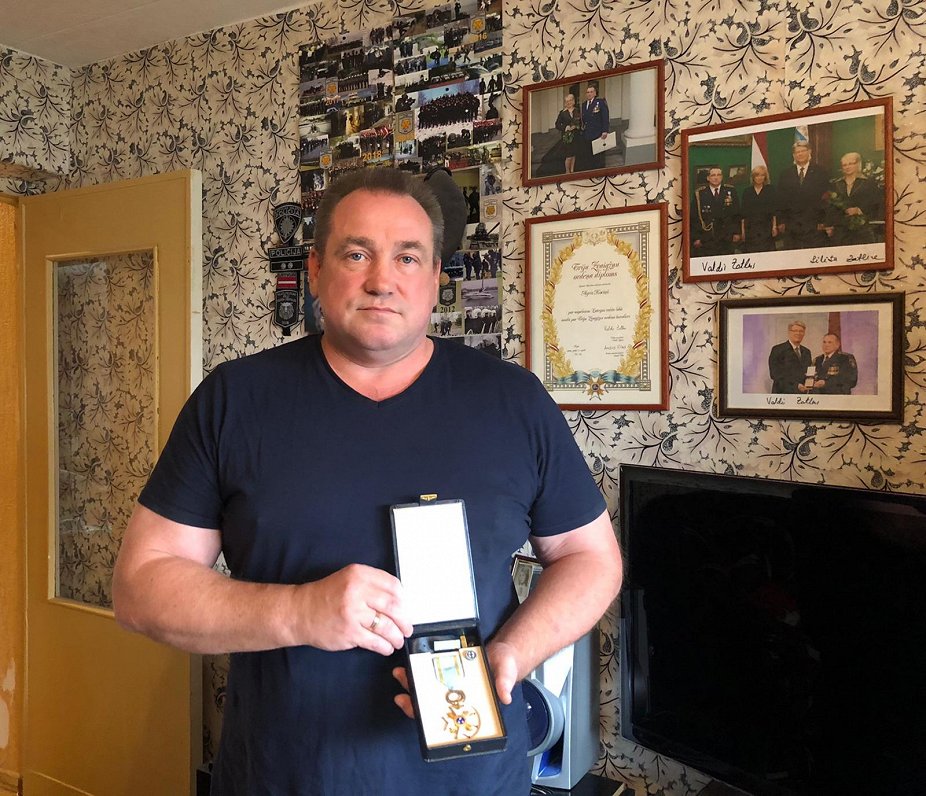Latvian Radio spoke with Kociņš, who was present with wife Aija and puffball cat Lakijs, at his flat in Iecava.
He started working at the Bauska police department at the age of 21. Local police volunteered to protect strategic points in the capital during the barricades movement. "We had to decide. It's our ministry, right? So we have to protect it. And we did so. We volunteered to go to Rīga and defended it," he says.
There were eight of them present during the attack. Three of these men received the Order of the Three Stars earlier, in the 1990s. Agris Kociņš and the others received it only in 2008. "The first to be awarded the order were those who had been wounded, the late Jānis Jasevičs, as well as Aļģis Simanavičs and Renārs Zaļais," says Kociņš.
Kociņš was at work upon learning he'd been awarded the order. "It was about noon. I had no idea I had been given the Order. A colleague called to congratulate me. That's how I learned it," said Kociņš. The colleague had seen Kociņš' name in the official state bulletin.
He had at first thought it was a joke, as 17 years had passed since the 1991 barricades. And they had been issued certificates from the Interior Ministry earlier, so there was no bitterness over not receiving the higher civil honor.
"It was somewhat a surprise that the country had come to value our part in all those events. I was happy to receive the highest state honor," said Kociņš.
"People have pointed out to me that we had been under fire while others have honors bestowed [for supposedly lesser] feats. True, there's a big difference, but there are other ways people contribute to the state. It's a rather loose honor, which I can receive together with athletes, writers, doctors, and teachers who have worked their whole lives with dedication," said Kociņš.
Kociņš assumes a rather reserved attitude when talking about the events of that January night. "You know, you can't really surprise me anymore," he laughs. He continued working as a policeman, participating in high-risk operations. "Maybe it's in my character. I consider myself a fighter in life. From the fourth grade I have been doing freestyle wrestling. I have graduated from the Murjāņi Sports School. I was a high-ranking athlete in the USSR. As an employee of the State Police, I partook in judo, sambo, and freestyle wrestling championships in Europe and across the world. I've only stopped doing this in the past few years," says Kociņš.

He retired last year and, for the first time since 1993, his mornings are not spent commuting from Iecava to work in Rīga. He is now building a house for the family, and his pastimes include fishing and hunting.
"I've never had as much free time. I can now dedicate it to myself, and improve things in my life and family," he says.
We also spoke to him about an equivocal event in recent Latvian history, the January 2009 riots in Old Rīga. "I was there, and was present with my officers. Mass riots are very difficult to bear," he says.
"I thought – well, it's nice we have a free Latvia. But if the people you've fought for throw bricks at you... I am not judging the entire movement as bad, but some individuals... This event left some lasting residue," he recalls.
"But I don't think that was democracy, per se. I think that was just sheer recklessness and shamelessness. You don't fight for democracy with bricks and bottles and looting," says Kociņš.
While as we return to the topic of the 1991 Barricades, Kociņš has this to say. "I would maybe suggest our young people to act with more responsibility towards the country. Now it's their turn. They have to keep protecting it and defending it. It's not like we're not to be counted on anymore, but... [laughs] Well, that's that."
































